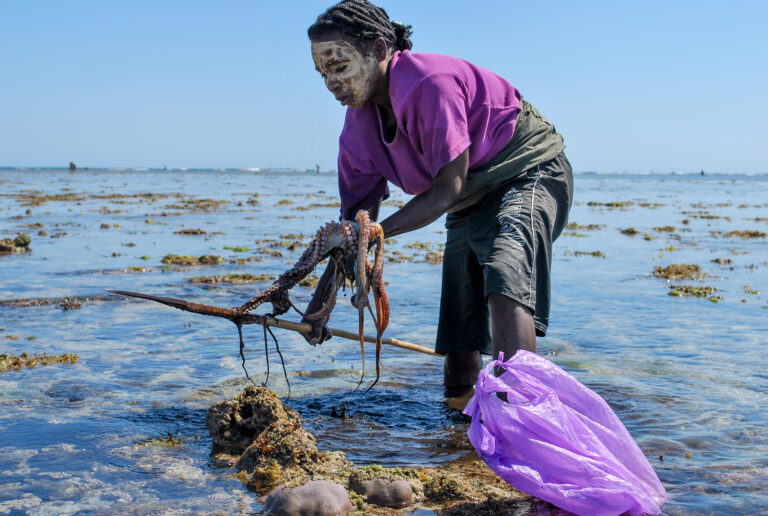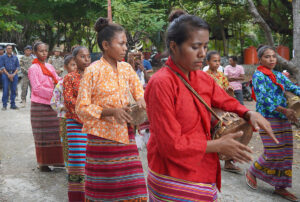The community of Andavadoaka in southwest Madagascar celebrated over a decade of successful temporary octopus fishery closures on 22 August, by harvesting over half a tonne of octopus in just one day at the latest closure reopening.
Early in the morning, fishermen and fisherwomen set off in their laka, traditional fishing boats, towards the island of Nosy Fasy to take part in a traditional fomba ceremony to ask for their ancestors’ blessing on this important day. After passing around a small bottle of rhum, the villagers climbed back into their laka, slowly making their way to the fishing sites to await the signal that the fishery was officially open. From that point, the reefs teemed with determined octopus hunters until the sun finally dipped below the horizon.
Octopus fishing is the mainstay of small-scale fisheries in southwestern Madagascar, providing both subsistence and income for coastal communities. When fishers in the remote village of Andavadoaka reported a decline in octopus catches in 2004, Blue Ventures supported community members to establish a small temporary octopus fishing closure in the hope of boosting productivity. This resulted in a huge increase in octopus landings and fisher incomes, which encouraged neighbouring communities to adopt the approach. This temporary closure model has since been replicated more than 300 times in Madagascar and beyond.
These successes kick-started further conservation efforts in the region, including the development of Velondriake – Madagascar’s first Locally Managed Marine Area (LMMA) – followed by the creation of a regional octopus fishery management body that works with communities to manage the fishery across the region.
Temporary octopus fishery closures have played an increasingly important role in the management of the fishery across southwest Madagascar over the ensuing 15 years. This year, an incredible 5,359 fishermen and women from 28 villages came out to celebrate the openings of 15 temporary closures across Velondriake and two of the neighbouring LMMAs. Fishers of all ages, from teenagers to great grandmothers, took up their traditional voloso spears to participate in the opening, harvesting over 4.1 tonnes of octopus in the Manjaboake LMMA, 450 kg in the Teariake LMMA, and 5.8 tonnes in Velondriake.
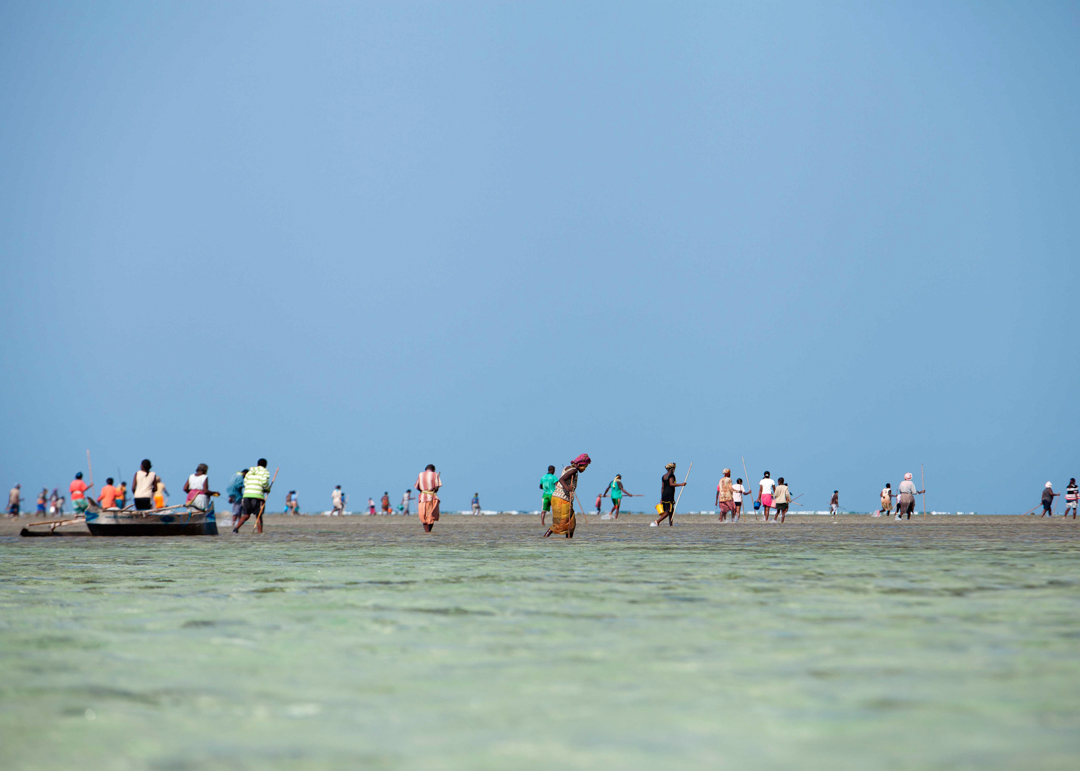
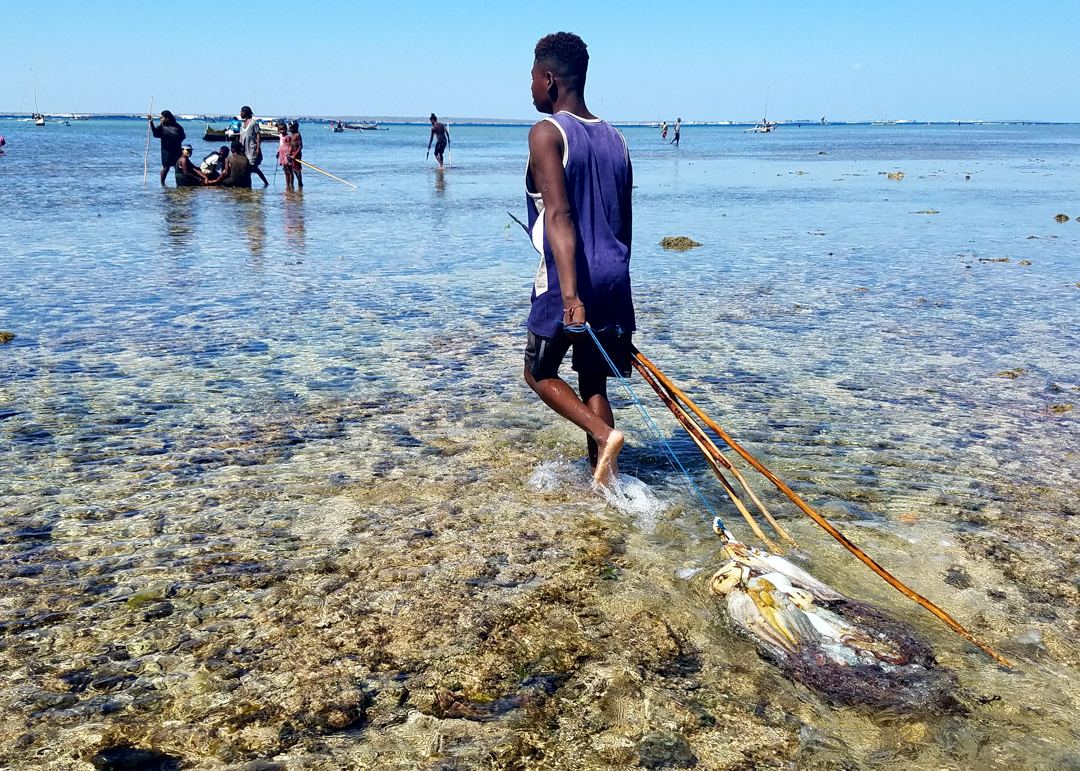
The island of Andranombala took its management measures a step further this year, restricting access to the closure site strictly to residents of the island. This step was taken to ensure greater gains for the local community but also to minimise impacts of trampling by overfishing on the coral reef. This management approach saw the island’s fishing yield more than double, in terms of catch per unit effort.
“We are happy to have taken part in the temporary closures again”, said a community member from the nearby island of Nosy Be. “Doing this once a year ensures that our children will also be able to continue fishing octopus in the future. It’s not often that a village can collect one tonne of octopus in one day!”
Fishery “reopenings” provide an invaluable opportunity to share the results of this approach with communities interested in learning about LMMAs and the impact of temporary fishing closures. Following a series of international community exchanges that have proven instrumental in increasing uptake of this model in recent years, Andavadoaka’s fishers were joined this year by visitors from Tanzania and Kenya, who traveled to Andavadoaka to witness the festivities.
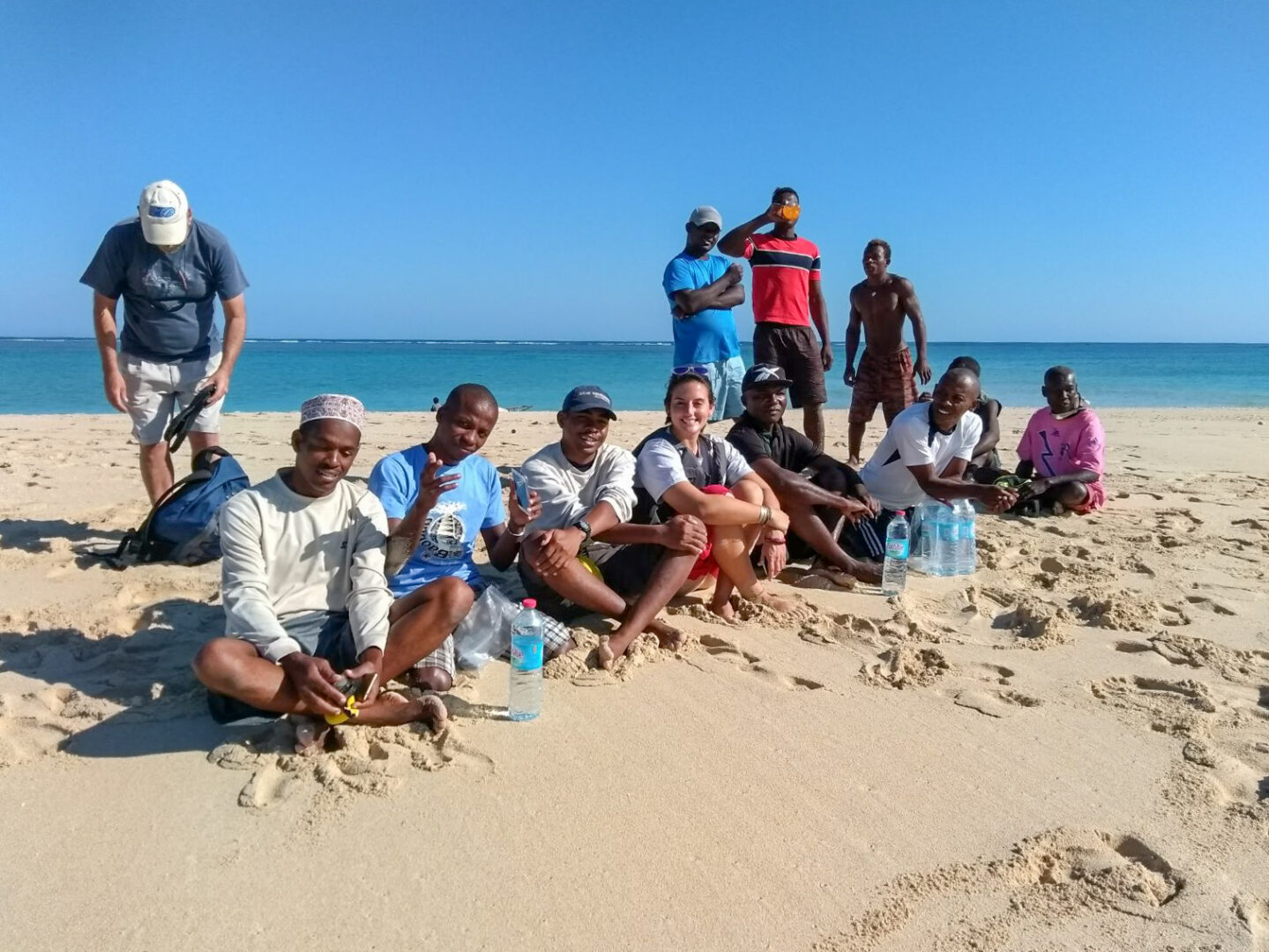
This latest visit is the first major part of a regional programme led by WIOMSA and CRC, bringing together representatives from LMMAs in Kenya, Tanzania and Madagascar to encourage knowledge exchange across the southwest Indian Ocean region. Hosting a workshop in Andavadoaka during the reopening enabled participants to experience the octopus closure model first hand, see community aquaculture in action, and learn more about the progress that the Velondriake LMMA has made over the years.
“I’ve never witnessed anything like this before – a community coming together to open a closure that they themselves decided to close voluntarily”, said Mwapondera Said Athumani, a LMMA leader from Tanzania, after attending the reserve opening.
“It’s very rare to find community mobilisation and collaboration like this. I hope to be able to share this with my community and encourage them to follow this example.”
This model of community based fisheries management through short term fishery closures has helped catalyse a growing LMMA movement in Madagascar, now covering over 150 sites across over 14% of the country’s inshore seabed and reaching over 250,000 people country-wide. The recent forum of the national LMMA network, MIHARI, gathered together 170 representatives from fishing communities across Madagascar. With one voice, they appealed to the government to act on important issues for small-scale fishers, such as destructive fishing practices and industrial fishing vessels. Blue Ventures will continue to support and empower this movement as it strives for greater impact.
Discover more about the temporary closure model for octopus fisheries.
The cover image was taken by marine conservation volunteer Barbara Hobi.

